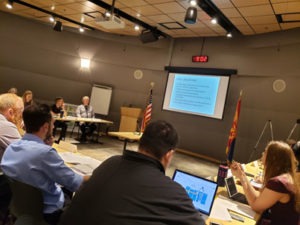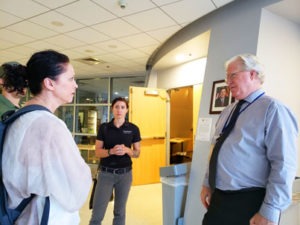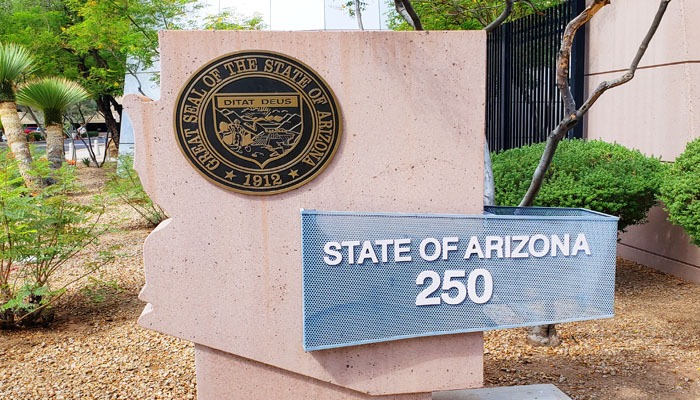BY ACM STAFF
When SB1494 passed, it not only made medical marijuana cards last two years, but also established a DHS council to write rules for mandatory testing for all medicinal cannabis begin Nov 1. 2020.
This week DHS held its first meeting to write those rules. Approximately 40 people attend the meeting held at DHS’s “igloo,” a sci-fi styled round conference room on the grounds of DHS’s state laboratory on Thursday morning, Sept 26. Twelve council members were selected by DHS to serve as an advisory board to refine provisions that will shape the Medical Cannabis Program. The Department is required to submit a report of the advisory council’s findings and recommendations by December 31, 2019.

The statute states the Medical Marijuana Testing Advisory Council shall make recommendations to the Department of Health Services on–establishing a required testing program, testing itself (what needs to be tested and how it will be tested., and potency standards for medical marijuana, procedural requirements for collecting, storing, and testing samples of medical marijuana, reporting results to patients, and the Department, and lastly, remediation and disposal requirements for medical marijuana that fails to meet testing standards.
DHS staffer Steve Baker has been put in charge of developing the program with the council. Baker came from the Department of Agriculture and has worked with public health and safety most of this century. Baker is excited to launch the new program and believes the department can get their work completed in a timely manner.

How Quickly Can Dispensaries Get Up to Speed?
The actual concern is not on the department being able to establish and implement rules, but instead on how quickly the dispensaries can get up to speed with the new standards and if the testing labs can get credentialed and up to scale in time to handle literally, weed by the ton.
Since Gov Ducey signed the bill at the end of the legislative session, DHS has been reviewing other state programs and touring lab facilities. The statute requires that to become a certified lab, a facility will have to have attained national or international accreditation. The standard in this case will the ISO 17025 diagnostic lab accreditation, a process that takes as much as half a year and $50,000 to complete.
Currently, the department has identified eleven operational cannabis testing labs and been contacted by specialty research labs on created guidelines for their work as well. Cultivators, manufacturers and labs are expected to adopt the new guidelines by April of next year. Starting Nov 1, 2020 all medicinal cannabis products in the state will have to be tested or pulled from the shelves.
The Testing Advisory Board
Ryan Hurley– President, /ED, Designee of State Non-profit Dispensary Association
George Griffeth– President, /ED, Designee of State Non-profit Cannabis Testing Association
Steve Cottrell– President, /ED, Designee Medical Marijuana Trade Association
Murray Stein– Registered Dispensary Agent 3 years cultivation experience
Matthew LaScala– Registered Dispensary Agent 3 years extraction experience
Ricky Hendrickson- Registered Dispensary Agent 3 years edible production experience
Tabitha Hauser– Owner of Arizona based cannabis testing laboratory
Dr Hope Jones– Laboratory Scientist, 3 yrs testing cannabis
Joseph Demenna– Registered qualifying patient
Blake Neri– Registered Designated caregiver
Vince Figarelli– Representative of Dept of Public Safety
Stephen Grams– Licensed Health Care Provider 5yrs experience/ specializes in substance abuse disorders
Farshad “Mazda” Shirazi, M.D., Ph.D- Possible additional member
Schedule
All meetings are open to the public and the cannabis community, though seating is limited. Meetings will take place 9:00 am – 10:30 am at the State Health Department Laboratories, 250 N 17th Ave, Phoenix, AZ 85007.
Thursday, October 24th
Tuesday, November 12th
Tuesday, December 10th
–ACM Staff


